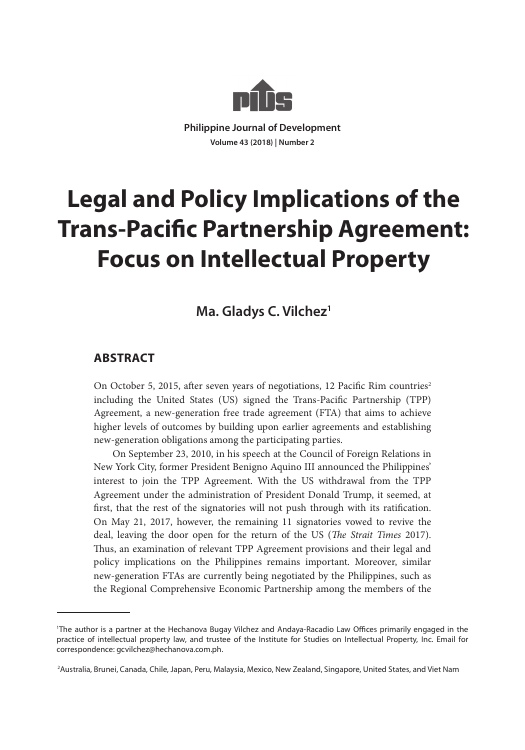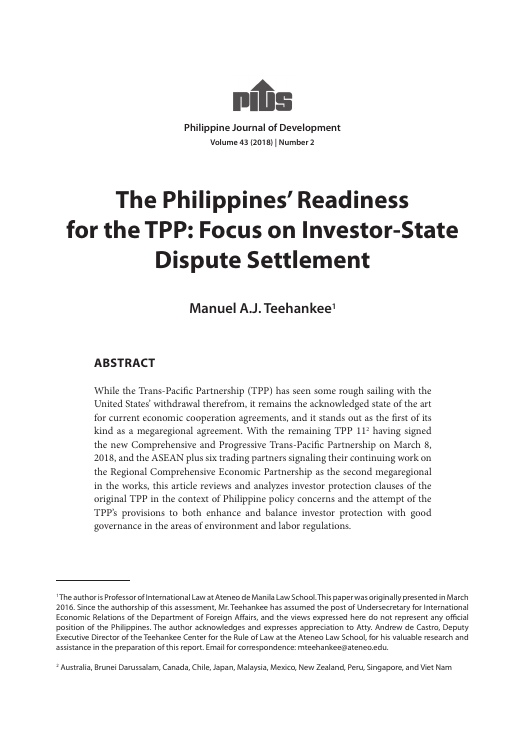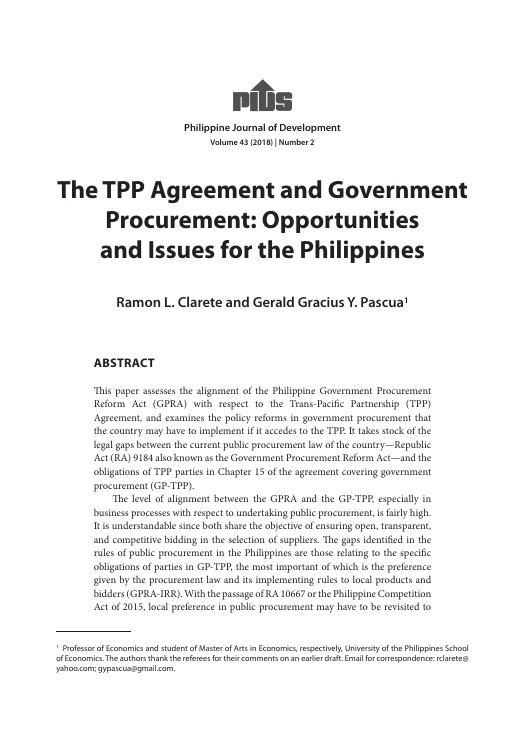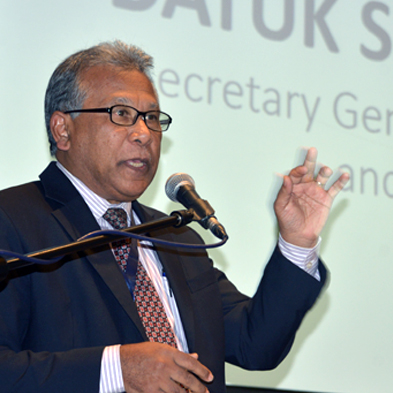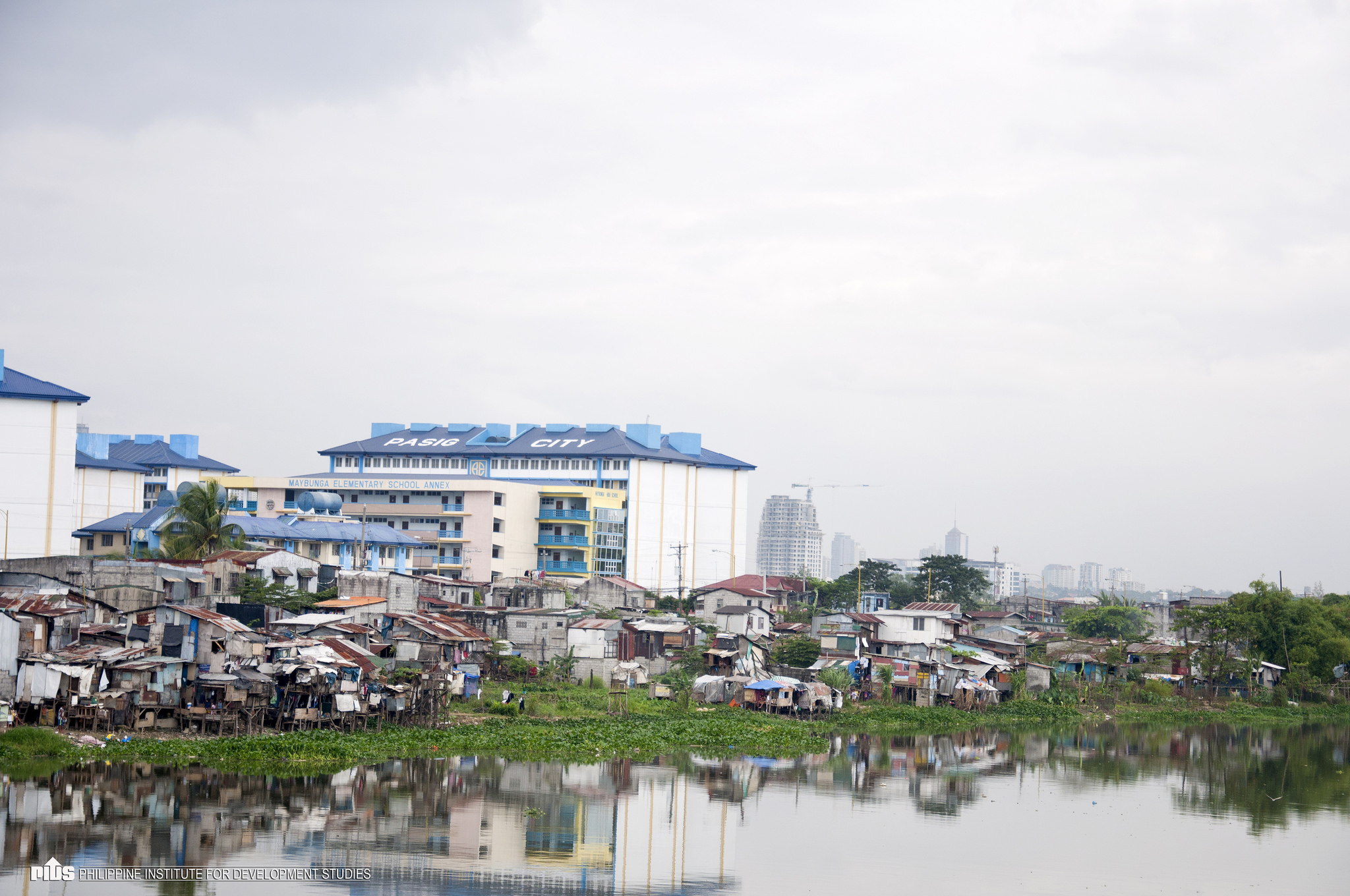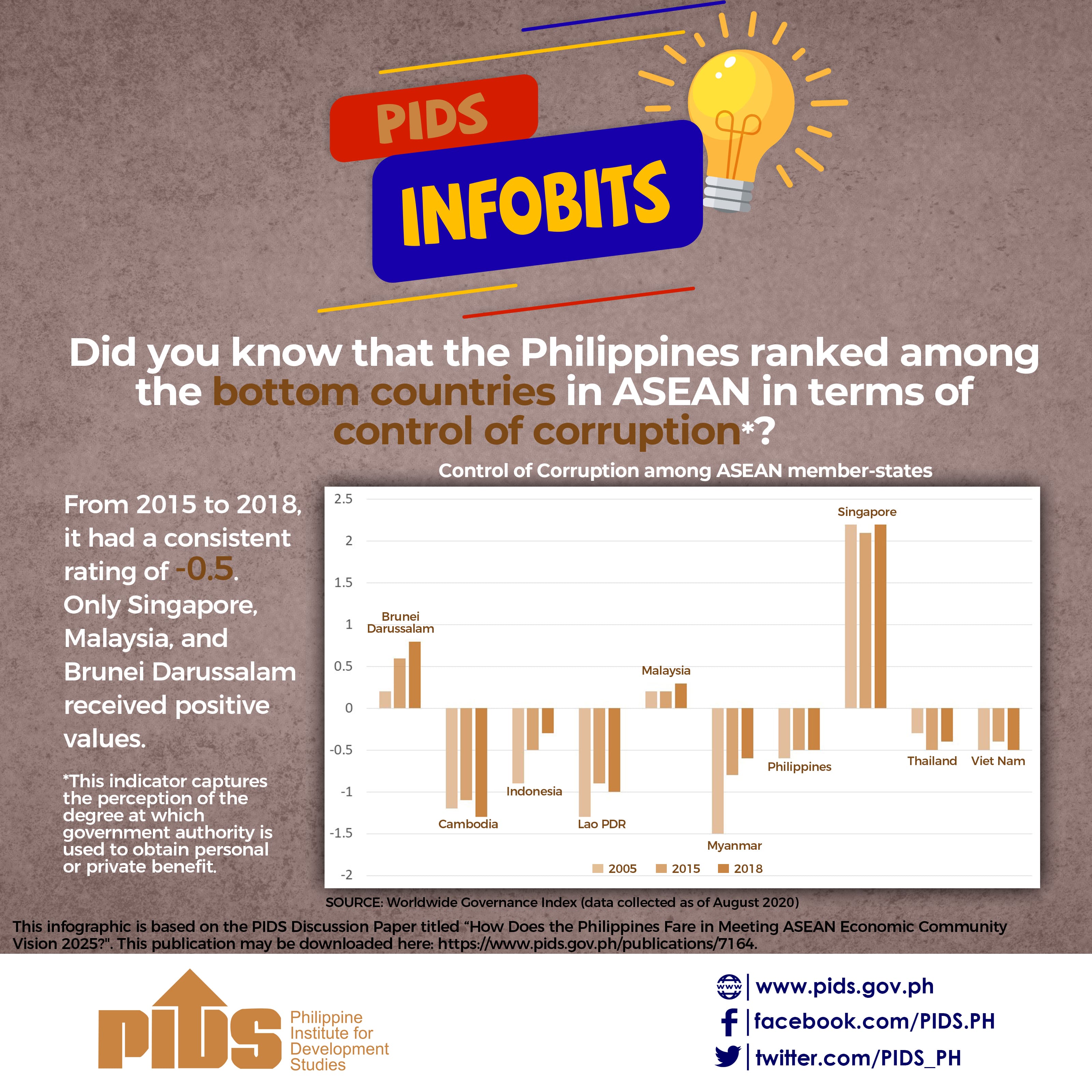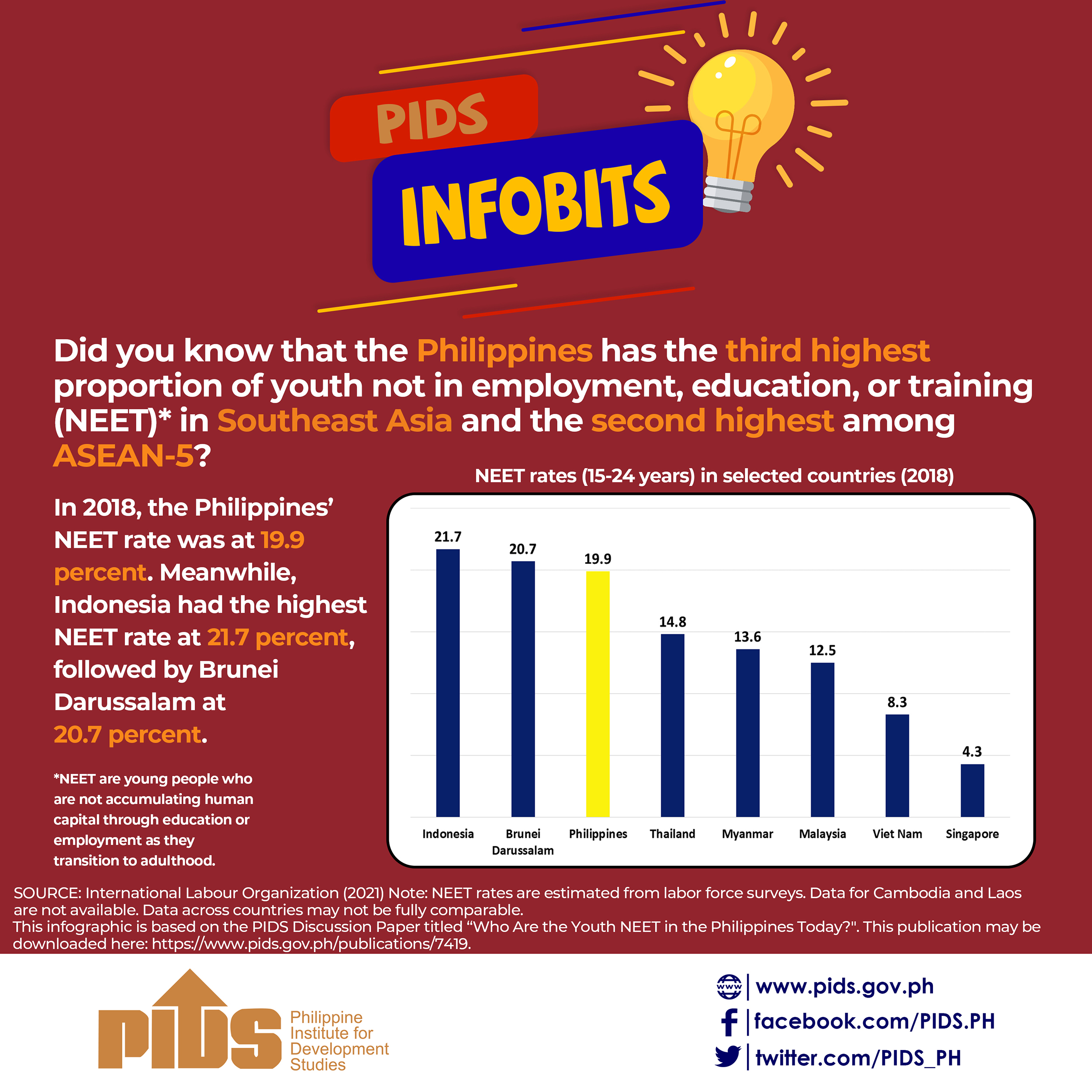The Philippines is still seriously interested to become part of the world’s most ambitious trade agreement, the Department of Finance (DOF) said.
After the signing of the Trans-Pacific Partnership (TPP), Finance Secretary Cesar V. Purisima, reiterated that the Philippines stands to gain from becoming a member of the trade pact.
Purisima, meanwhile, congratulated the 12-member nations of the TPP.
“TPP membership bodes well for economic performance at home as well,” Purisima said. “An April 2014 Philippine Institute of Development Studies paper projected that the value of Philippine exports will rise if it participates in the TPP.”
According to the study, the increase in exports ranges from 0.44 percent to be realized from year two to 11 of joining.
“I remain strongly in favor of Philippine membership to the TPP,” Purisima said.
“The TPP has the potential to be one of the most reliable drivers of growth when the global environment turns sluggish. The potential to join the trade grouping is a golden opportunity we must work hard not to pass up,” he added.
The TPP, which is currently being initiated by 12 countries, aims to establish a free trade bloc which would represent more than half of global output and over 40 percent of world trade.
The trade pact, which was sealed this week, will remove trade barriers as well as set standards for intellectual property, labor rights and environmental protection.
However, the Philippines is not among the 12 TPP nations, but Manila has already expressed keen interest in joining the trade agreement.
But the Philippines’ membership is being pushed back because of trade barriers in the country, including its Foreign Investment Negative List and restrictions for foreign retail investors.
In 2014, Manila signalled that it may gain a favorable position in its bid to becoming part of the TPP given recent moves by the government to further liberalize the local economy.
There were also proposals in Congress that aim to amend some economic provisions of the Constitution like the Foreign Investment Negative List. In 2014, the Philippines also liberalized its banking sector ahead of the ASEAN integration.
Aside from the United States, other member-countries of the TPP are Australia, Brunei Darussalam, Canada, Chile, Japan, Malaysia, Mexico, New Zealand, Peru, Singapore and Vietnam.//
After the signing of the Trans-Pacific Partnership (TPP), Finance Secretary Cesar V. Purisima, reiterated that the Philippines stands to gain from becoming a member of the trade pact.
Purisima, meanwhile, congratulated the 12-member nations of the TPP.
“TPP membership bodes well for economic performance at home as well,” Purisima said. “An April 2014 Philippine Institute of Development Studies paper projected that the value of Philippine exports will rise if it participates in the TPP.”
According to the study, the increase in exports ranges from 0.44 percent to be realized from year two to 11 of joining.
“I remain strongly in favor of Philippine membership to the TPP,” Purisima said.
“The TPP has the potential to be one of the most reliable drivers of growth when the global environment turns sluggish. The potential to join the trade grouping is a golden opportunity we must work hard not to pass up,” he added.
The TPP, which is currently being initiated by 12 countries, aims to establish a free trade bloc which would represent more than half of global output and over 40 percent of world trade.
The trade pact, which was sealed this week, will remove trade barriers as well as set standards for intellectual property, labor rights and environmental protection.
However, the Philippines is not among the 12 TPP nations, but Manila has already expressed keen interest in joining the trade agreement.
But the Philippines’ membership is being pushed back because of trade barriers in the country, including its Foreign Investment Negative List and restrictions for foreign retail investors.
In 2014, Manila signalled that it may gain a favorable position in its bid to becoming part of the TPP given recent moves by the government to further liberalize the local economy.
There were also proposals in Congress that aim to amend some economic provisions of the Constitution like the Foreign Investment Negative List. In 2014, the Philippines also liberalized its banking sector ahead of the ASEAN integration.
Aside from the United States, other member-countries of the TPP are Australia, Brunei Darussalam, Canada, Chile, Japan, Malaysia, Mexico, New Zealand, Peru, Singapore and Vietnam.//

